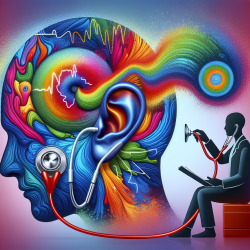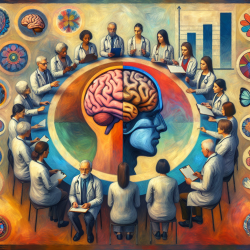Introduction
As speech-language pathologists, we are constantly seeking ways to improve outcomes for our clients, especially those recovering from strokes. Recent research sheds light on the intricate relationship between brain connectivity and aphasia severity, providing valuable insights for practitioners. A study titled Chronic post-stroke aphasia severity is determined by fragmentation of residual white matter networks explores this connection, offering potential pathways for enhancing therapeutic approaches.
The Study's Core Findings
The study involved 90 stroke survivors with left hemisphere damage, focusing on how the brain's white matter network organization affects aphasia severity. Researchers found that greater fragmentation of these networks correlates with more severe aphasia, even when cortical regions appear relatively intact. This suggests that the integrity of white matter connections plays a crucial role in language recovery post-stroke.
Implications for Practitioners
Understanding the study's findings can significantly impact clinical practice:
- Personalized Treatment Planning: By assessing the modularity and fragmentation of a patient's white matter networks, practitioners can tailor therapy plans to target specific areas of disconnection, potentially improving recovery outcomes.
- Focus on Network Integrity: Therapists should consider interventions that promote the reorganization and strengthening of white matter connections, such as intensive language practice and neuroplasticity-enhancing activities.
- Use of Advanced Imaging: Incorporating advanced imaging techniques like diffusion tensor imaging (DTI) into clinical assessments can provide a more comprehensive understanding of a patient's brain connectivity, guiding more effective treatment strategies.
Encouraging Further Research
While this study provides valuable insights, it also opens avenues for further research. Practitioners are encouraged to explore the following areas:
- Longitudinal Studies: Investigate how changes in white matter connectivity over time correlate with language recovery, providing insights into the long-term effects of therapeutic interventions.
- Comparative Studies: Compare different therapeutic approaches to determine which are most effective in promoting network reorganization and language recovery.
- Integration of Technology: Explore the use of technology, such as virtual reality or computer-based language exercises, to enhance traditional therapy methods and support network connectivity.
Conclusion
The study underscores the importance of considering white matter network integrity in aphasia recovery. By integrating these findings into clinical practice, speech-language pathologists can enhance their therapeutic approaches, ultimately leading to better outcomes for stroke survivors.
To read the original research paper, please follow this link: Chronic post-stroke aphasia severity is determined by fragmentation of residual white matter networks.










